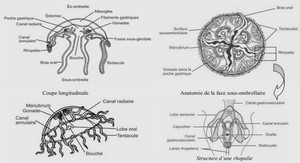DECONSTRUCTING AND REPRODUCING AFRICAN MALE WRITINGS IN THE FEMALE AFRICAN NOVEL
Chapter Three: Revisiting Gender Inequality
The inequality between male and female is noticeable through women‟s economic subordination to men, male authority and power, and the ignorant image of women. In the books by African men writers, men are most of the time the main providers for the family. Women are expected to stay at home, take care of the house, their husbands and their offspring, as well as educate the children. They often lead economic activities but not as important as those of men. So, as husbands and providers, men are masters of their houses. Besides, as the ones who will take over from their fathers and continue the paternal lineage, boys are privileged over girls who are often kept at home. Girls are not sent to school and if the case arises, they are not supposed to spend much time there insofar as their main goal should be to get married and have children. Usually, women are either illiterate or uneducated. They are viewed as people who do not know much. Not only are they often deceived and used by men but they also show foolishness frequently. The works that will be under study here are Ambiguous Adventure (62) by Cheikh Hamidou Kane, Highlife for Lizards, Maïmouna, Tribal Scars and Other Stories, Les bouts de bois de Dieu (60) The Prodigal Husband, Elechi Amadi‟s Estrangement (86) and The Concubine, Ngugi‟s Devil on the Cross (82), A Grain of Wheat, Petals of Blood and Weep Not Child, Ola Rotimi‟s Our Husband Has Gone Mad Again (77), Bebey‟s The Ashanti Doll and Le 77 fils d‟Agatha Moudio, Perpétue ou l‟habitude du malheur, Chirundu, Les soleils des indépendances, The Lion and the Jewel, Things Fall Apart, Trois prétendants… un mari and Sous l‟orage. 78 1) Women’s Economic Subordination to Men: The economic subordination of women to men can be seen in many books by African men writers; women depend financially on men, more often wives on their husbands. Among the said books is Ngugi Wa Thiong‟o‟s Devil on the Cross where women pass by men to get an employment or solve their economic problems. This is an opportunity which the employers seize to blackmail women: The Modern Love Bar and Lodging has become the main employment bureau for girls, and women‟s thighs are the tables on which contracts are signed… and modern problems are resolved with the aid of thighs. He who wishes to sleep is the one who is anxious to make the bed. When they are hired, women must also accept to have sexual relationships with their employers or else they lose their job. Wariinga is fired for refusing to sleep with her boss, Kihara. Although Wariinga has refused to keep her employment in this way, this is not the case of most of the employed women. As women are often employed by male bosses, it goes without saying that they are subordinate to these men in their working places. Besides, their remunerations do not pull them out of their poverty, which is illustrated by Wariinga: We who work as clerks, copy typists and secretaries… We who type and take dictation from Boss Kihara and his kind… Who are we? Who are we? Many a time I’ve heard women say: “Our firm does this and that”, “In our firm we employ so many workers who earn this much”, “Our company made this much profit”, and as they speak, they do not have a cent for their bus fare in the evening. Yes, I’ve often heard girls bragging about their bosses, and when you check carefully to see what they’re 2 Quoted by Jude Agho, “Class Conflicts and the Rise of the „Proletarian‟ Novel in Africa‟‟ 79 bragging about, you can’t find a thing. A few hundred shillings a month for a woman with children to feed, and we proudly call that a salary?3 A similar situation is found in Petals of Blood where, according to Wanja, the means for women to earn a living in Kenya without having to give themselves to male opportunists or blackmailers is marriage: “If you have a cunt, if you are born with this hole, instead of being a source of pride, you are doomed to either marrying someone or else being a whore.”4 A girl in African society in general is expected to find a husband who will support her financially while she takes care of the housework and the education of the children: …but boys were always more confident about the future than girls. They seemed to know what they wanted to become later in life, whereas with us girls the future seemed vague… It was as if we knew that no matter what efforts we put into our studies, our road led to the kitchen and to the bedroom. 5 Since she is not married, Wanja prostitutes herself and employs many other girls to do the same. However, prostitution still shows women‟s financial dependence on men in the sense that without men, women will not earn money. As for Mame Sofi, Bineta, Mariame Sonko, Awa, etc.,6 they are married and they are supported by their husbands, the railwaymen. So when these men stopped working on account of their strike and were getting no more salaries, their families lived in extreme poverty, they hardly had anything to eat or drink. Ramatoulaye has even made it clear that the role of breadwinner is too heavy for a woman: … nous avons faim, trop faim. Les hommes le savent bien, mais eux, ils partent tôt le matin et ne rentrent que le soir venu. Et 3 Quoted by Emily Ann Brumley, “Wariinga‟s Got a Gun: Feminism and Revolution in Devil on the Cross‟‟ 4 Eren Bolat, op. cit., p. 41 5 Ibid., pp. 41-42 6 Sembène Ousmane, Les bouts de bois de Dieu, Paris, Presses Pocket, 60 80 nous, les femmes, nous avons besoin d‟un appui. Le rôle de chef de famille est lourd, trop lourd pour une femme.7 [… we are hungry, too hungry. The men do know it, but them, they leave early in the morning and only come back home in the evening. And we, the women, we need support. The role of head of household is heavy, too heavy for a woman.] If the women earned as much as the men or a bit less than them, their living conditions and those of their children would not be so bad. Like Mame Sofi and the others, Ngotho‟s wives8 are supported by their husband. That is why Nyokabi, the second wife, does not agree with Ngotho who is ready to start a strike with the other black people to claim better salaries. In fact, she knows that if the strike fails, her husband will lose his job and consequently, the family will starve. Therefore, Nyokabi insists on making Ngotho take into account this negative consequence of the strike‟s failure, which has earned her a slap from her husband.
Male High-handedness and Power
Male high-handedness and power can be seen through the strong desire to have sons and parents‟ reliance on their male children, the restrictions imposed on women and the fact that decisions are taken by men. Male power and authority can also be noticed through the position and privileges that are: … accorded to males in marriage in general and the concomitant loss of status that is the females‟. The excesses of polygamy which most offend women include the man‟s prerogative to be catered for by several women, the fact that he usually has the choice, the rejection of women and the competition between them which his choices generate. 216 In African society, the husband is the head of the household. For this reason, he is supposed to feed and provide for his wives who owe him obedience and submission. The fact that man pays the dowry, wives leave their parental homes to join their husbands‟ and children bear their father‟s family name illustrates the leading position of the husband. This subordination of woman, according to Agom, is in the natural order of things: It is a man‟s privilege, after marital union with woman, to stand aloof and unconcerned, and a woman‟s to develop his seed for nine months and… It is natural for man to be direct in his ways with woman and she to be devious, him to be plain, she to be subtle; him to roam the earth as he pleases, she to be always home; him to be strong, she weak so that he can lord it over her and chastise her if she should misbehave. These laws are not man-made and anyone who honestly believes they can be reversed is a freak. 217 Therefore, Agom addresses the African woman who has been to college and who wants to reject these laws. The heroine does so through the young 216 Carole Boyce Davies, “Feminist Consciousness and African Literary Criticism”, op. cit., p. 9 217 Onuora Nzekwu, op. cit., pp. 1-2 88 schoolmistresses from the mission school. Agom wants the said African woman not to deceive herself: she cannot be in the same position as her husband: Instead of using her education to make herself more of an ideal wife, she becomes her husband‟s rival. She claims she is his equal. She wants to do all he does and to go wherever he goes, and butt in on his discussions with other men. […] The modern woman attributes her stand to a new light shown by her education at college. But this light that makes her trespass on a man‟s preserve can only be darkness. It blinds her to the natural laws governing the relationship between man and wife. 218 Concurring with his wife, Udezue remarks that there can be only one head in a household, and God has decided that it is the husband. Any household that attempts to have more shall fall: “The Creator is no fool… There can only be one helmsman to guide a canoe. Any canoe that tries having two will end in the deep.”2 As the head of his household, Udezue cannot tolerate the blackmail of Agom who refuses to have sex with him whenever they quarrel. So he takes a second wife, Nwadi, who is a friend of Agom‟s. It is after his first wife leaves for Enugu in order to attend to her aunt and her newly delivered baby that Udezue marries Nwadi. Besides, before Agom comes back five months later, Nwadi gets pregnant. The heroine of the novel is very bitter when she returns and discovers the reality for her husband kept her in the dark. As for Nwadi, she is surprised and disappointed because Udezue told her that he had talked to Agom about his union with her whereas he had not. But Udezue is not disturbed; he knows what he is doing, which is to divide and rule: A long time before, Udezue had discovered that the ability to keep women together and under control in a polygamous 218 Onuora Nzekwu, op. cit., p. 1 2 Ibid., p. 2 89 home depended, to a large extent, on the personality of the head of the house and on his tact. Because he had lost something of that personality he had decided… that he would create a situation in which Agom and his second wife would never be able to establish full confidence in each other. It was in pursuance of this plan that he did not tell Agom about Nwadi until now. 0 This scenario shows men‟s power over women. Man is allowed to marry more than one wife whereas woman cannot have more than one husband. Besides, man is free to get married again without informing his wife or wives. Udezue has succeeded in his plan of making his wives mistrustful towards each other. Agom feels betrayed by Nwadi who, in spite of their friendship, has married her husband. As for Nwadi, she believes that either polygamy does not appeal to her co-wife or Agom is envious of her pregnancy in that she, the senior wife, is childless. That Agom is pained by her pregnancy, Nwadi can understand. But that Agom refuses to share her husband, Nwadi cannot make out insofar as Agom‟s father had ten wives. From now on, Agom will obey her husband and even strive to please him for two reasons: on the one hand, Udezue has an alternative in Nwadi and, on the other hand, Agom will do her utmost to be her husband‟s favourite to the detriment of her rival. Nwadi too will strive to do like her rival, which will ensure Udezue‟s power over them. The privilege which Udezue‟s taking another wife is going to give him is the one which Mustapha is enjoying in the short story “Her Three Days” in Tribal Scars and Other Stories by Sembène Ousmane. Getting ready to receive her husband for her three-day turn after the man has given his fourth and newly married wife hers, Mustapha‟s third wife, Noumbe, has really troubled herself to keep the place she had in her man‟s heart: “During these three days of waiting Noumbé has cooked Mustapha‟s favorite dishes, beautified herself, 0 Onuora Nzekwu, op. cit., p. 104 90 dressed with extreme care, saved meat and borrowed money from her next-door neighbor to ensure Mustapha‟s comfort.”1 But Mustapha comes to his third wife three days after he was due. Mustapha flouts thus Noumbe‟s right with impunity. The point is that Noumbe is undergoing what she did to her senior cowives and she realizes now the dominant position of their husband: Noumbe remembers how it was to be the favorite and remembers also how she kept the husband beyond her own three days just as the new wife is doing now. She remembers how she cheated the other wives, how she tried to drain the husband of his strength so he would be “no good” to the next woman whom he was to visit. Now it is her turn, and she sees for the first time the viciousness of the competition. Noumbe realizes that she and the other wives are fighting a losing battle and that the husband is always the winner. 2 It is Fama who is also privileged in his relationship with his wives, Salimata and Mariam, which appears in this passage: « Fama et ses deux femmes occupaient la petite pièce avec un seul lit de bambou, un seul « tara ». La femme (celle à qui appartenait la nuit) montait à côté du mari, l‟autre se recroquevillait sur une natte au pied du tara. »3 [Fama and his two wives occupied the small room with only one bamboo bed, only one “tara.” The wife (the one whom the night belonged to) got on next to the husband, the other one curled up on a mat at the foot of the tara.
Part One:Some Thematic Commonalities of African Male Writings |




